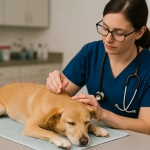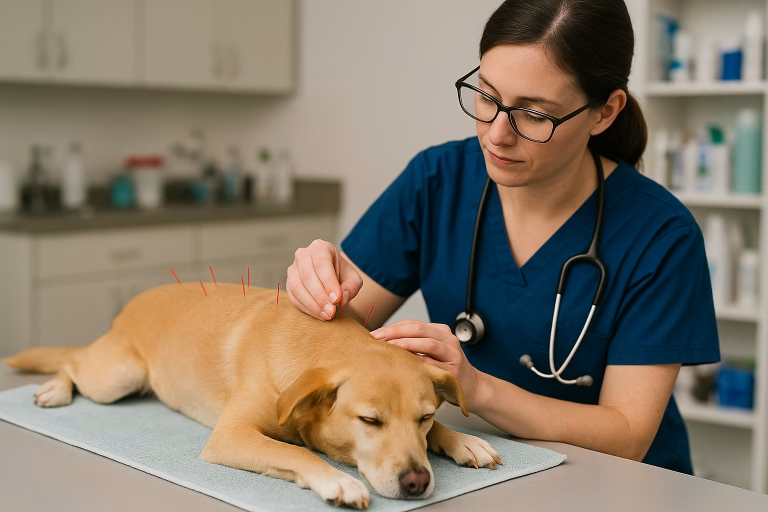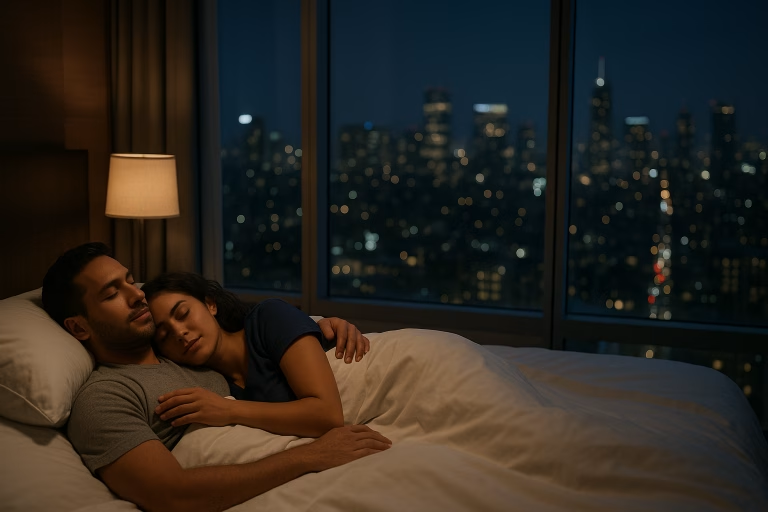
A serene moment of restful sleep in a modern high-rise apartment, showcasing how the right snore aids can help achieve quiet, uninterrupted nights.
I. Introduction
Snoring is one of the most common nighttime disruptors—affecting roughly 40% of adult men and about one-quarter of adult women, with many more reporting occasional snoring as they age. Beyond the noise (and partner fatigue!), habitual snoring can fragment sleep, trigger morning headaches, and sap daytime focus. It can also be a red flag for obstructive sleep apnea (OSA), a treatable medical condition linked to cardiometabolic risks. Sleep EducationJCSMAASM
As a pharmacist-written, evidence-guided buyer’s guide, this article curates the Top 5 pharmacist-recommended snore aids, ranked by (1) what pharmacists most often recommend at the counter and (2) what sold strongly last year in the OTC market. You’ll learn what each product does, who it’s best for, and what the clinical literature says about the underlying mechanisms—from external or internal nasal dilators that open nasal passages, to mandibular advancement mouthpieces that move the lower jaw forward, to EPAP (expiratory positive airway pressure) strips that increase airway stability during exhalation, and smart sensors that subtly adjust head and neck position when early snoring is detected. Where available, we link to high-quality sources such as the American Academy of Sleep Medicine, peer-reviewed studies, and manufacturer instructions for safe use. Sleep EducationPMC+2PMC+2JCSM
Who this guide helps:
- Nasal-based snorers (congestion, allergies, deviated septum) may benefit most from nasal dilators/strips. Randomized and controlled studies show that these devices can increase nasal patency and improve sleep-related quality of life in appropriately selected users. PMC+1PubMed
- Mouth snorers and some patients with mild OSA (diagnosed) often respond to mandibular advancement devices (MADs), supported by multiple clinical trials and consensus statements in dental sleep medicine. (Note: MADs should be fitted/used per labeling and ideally discussed with a clinician, especially if OSA is suspected.) PMC+1JCSM
- Snorers seeking a drug-free, non-mouthpiece option may consider EPAP strips (e.g., Theravent). EPAP is clinically validated for OSA in some devices and marketed for snoring in others; proper selection matters. PMCScienceDirectJSciMed Central
- Tech-forward, contact-free systems (e.g., pillow-adjusting devices) may help positional or mixed-mechanism snoring when comfort and partner acceptance are top priorities. Evidence is emerging and more limited than for the categories above. Verywell Health
How to use this guide:
- Identify your likely snoring mechanism (nose vs. mouth vs. position). 2) Match to the right device type below. 3) Review pros/cons, evidence highlights, and care tips. We’ll also include outgoing links to product pages and select studies to help you comparison-shop confidently and safely.
Medical disclaimer (read first): This guide covers over-the-counter snore aids for habitual, uncomplicated snoring. If you experience gasping/choking during sleep, loud nightly snoring, witnessed apneas, excessive daytime sleepiness, morning headaches, resistant hypertension, or atrial fibrillation, talk to your clinician about diagnostic testing for sleep apnea before relying on OTC devices. Children, pregnant patients, people with cardiopulmonary disease, and those with dental/TMJ issues should seek individualized medical advice before using oral or resistance-based devices. Sleep EducationAASM
II. Understanding Snoring
Snoring isn’t just an annoyance—it’s a physiological signal. To choose the right snore aid, it’s important to understand what causes snoring, why it can be risky, and why pharmacists play a key role in guiding safe OTC choices.
A. Causes of Snoring
Snoring occurs when airflow through the mouth or nose is partially obstructed during sleep. This causes soft tissues in the upper airway to vibrate, producing the familiar sound. Several common factors contribute:
- Relaxed throat and tongue muscles – During deep sleep, muscles naturally relax. For some people, this narrows the airway and increases tissue vibration.
- Nasal congestion or blockage – Allergies, colds, sinus infections, or a deviated septum can restrict nasal airflow. This forces mouth breathing and worsens snoring.
- Clinical note: Nasal dilators (e.g., Breathe Right) have been shown to reduce resistance and improve airflow in these cases .
- Sleep position – Back sleeping allows the tongue and soft palate to collapse backward, obstructing the airway.
- Lifestyle factors – Alcohol, sedatives, smoking, and obesity all contribute to airway narrowing or tissue relaxation.
- Structural issues – Enlarged tonsils, adenoids, or polyps can physically block airflow.
B. Health Risks Associated with Snoring
Occasional, mild snoring may be harmless. But chronic or loud snoring can carry serious health implications:
- Sleep fragmentation & fatigue – Micro-awakenings reduce restorative deep sleep, leading to daytime sleepiness and poor concentration .
- Relationship strain – Partners of habitual snorers often suffer secondary sleep deprivation.
- Hypertension & metabolic risks – Habitual snoring is a marker for sleep-disordered breathing. Untreated obstructive sleep apnea (OSA) has been linked to high blood pressure, insulin resistance, atrial fibrillation, and cardiovascular disease .
- Quality of life decline – Reduced productivity, irritability, and higher accident risk from drowsy driving.
Important distinction: Snoring does not always equal OSA, but loud, nightly snoring—especially with pauses, choking, or excessive daytime sleepiness—should prompt a medical evaluation.
C. Why Pharmacist Input Matters
Pharmacists are often the first point of contact when someone looks for snoring remedies. Their role is crucial because:
- They can differentiate between mild habitual snoring and red-flag symptoms that warrant referral for a sleep study.
- They know which OTC products are evidence-based, drug-free, and safe for self-care.
- They can prevent misuse of oral devices or EPAP strips in patients who may have unrecognized sleep apnea.
- They can counsel on adjunctive therapies—like saline sprays for congestion or antihistamines for allergies—that complement snore aids.
In short, pharmacist guidance ensures patients select the right aid for their cause of snoring, while avoiding delays in diagnosing more serious conditions.
III. Criteria for Choosing Snore Aids
Not all snore aids are created equal. Pharmacists typically use a set of clinical and practical criteria to help patients find the most suitable product. By understanding these factors, shoppers can make safer and more effective choices—avoiding wasted money and unnecessary frustration.
A. Safety First
- Drug-free vs. medicated options
- Most snore aids are mechanical (nasal strips, dilators, mouthpieces), meaning they don’t contain active drugs and are safe for frequent use.
- Products marketed as sprays or drops sometimes contain essential oils, saline, or lubricants. While generally safe, some may cause irritation or allergic reactions.
- Contraindications
- Oral appliances may not be appropriate for people with temporomandibular joint (TMJ) disorders, loose teeth, or dental implants.
- EPAP devices (like Theravent) are not recommended for people with diagnosed sleep apnea unless under physician supervision.
- Always check labeling for age restrictions—many snore aids are not intended for children.
B. Comfort and Ease of Use
A snore aid won’t work if it sits unused in the drawer. Comfort is one of the biggest predictors of adherence:
- Nasal strips: External, adhesive-based solutions—comfortable but can lose adhesion on oily skin.
- Nasal dilators: Internal, adjustable devices—reusable but may feel foreign at first.
- Mouthpieces (MADs): Effective but require adjustment and cleaning.
- Smart devices: Non-contact, but some users find the tech setup overwhelming.
Pharmacists often suggest trying the least invasive option first before moving on to more complex devices.
C. Clinical Evidence and FDA Clearance
- Look for devices that have undergone clinical trials or FDA clearance.
- Mandibular advancement devices (MADs) are well-supported in literature as a first-line option for mild sleep apnea and heavy snoring.
- Reference: American Academy of Dental Sleep Medicine clinical practice guidelines.
- EPAP devices (like Theravent) have published data in CHEST Journal showing reductions in apnea-hypopnea index and snoring intensity.
- Nasal dilators have multiple randomized controlled trials demonstrating improved nasal airflow and reduced perceived snoring.
📌 Outgoing reference:
- PubMed Database – searchable clinical studies on snoring interventions.
- FDA Guidance on Anti-Snoring Devices – regulatory background.
D. Affordability and Availability
- Budget-friendly options: Nasal strips and dilators, widely available in pharmacies.
- Mid-range options: Oral appliances (like ZQuiet), priced higher but reusable.
- Premium options: Smart pillow-adjusting devices (e.g., Smart Nora), often several hundred dollars but technology-driven.
A key pharmacist tip: Start with low-cost, low-risk options and only move up to premium or specialized devices if initial attempts fail.
E. Personalized Fit
- Trial and error is often necessary—what works for one snorer may not work for another.
- Pharmacists usually recommend products tailored to the suspected cause (nasal vs. oral vs. positional snoring).
- Adjustable, customizable products (e.g., Mute nasal dilators, boil-and-bite MADs) increase the chance of long-term success.
⚖️ Bottom line: The best snore aid is one that’s safe, evidence-backed, comfortable, and aligned with the root cause of snoring.
IV. Top 5 Pharmacist Recommended Snore Aids
Here we break down the five most pharmacist-recommended and top-selling snore aids, with details on how they work, who they’re best for, and what the evidence says. Each mini-section includes pros, cons, clinical insights, and outgoing links so you can make an informed choice.
1. Breathe Right® Nasal Strips – #1 Pharmacist-Recommended
Overview:
Breathe Right Nasal Strips are flexible, adhesive bands that stick across the bridge of your nose. The built-in spring-like action lifts and opens nasal passages, making it easier to breathe through the nose while asleep. This drug-free option is particularly effective for people whose snoring is caused by nasal congestion, allergies, or a deviated septum.
Clinical Evidence:
- A randomized controlled trial in American Journal of Rhinology found that nasal dilator strips significantly improved nasal airflow and reduced snoring intensity in select patients .
- Pharmacists recommend them widely because they are inexpensive, easy to try, and carry almost no systemic side effects.
Pros:
- #1 pharmacist-recommended snore aid
- Drug-free and non-drowsy
- Provides instant relief for nasal obstruction-related snoring
- Widely available in different sizes for adults and children
Cons:
- Less effective for throat or mouth-based snoring
- Adhesion issues on oily or sweaty skin
- Single-use (recurring cost if used nightly)
Where to Buy:
- Official Breathe Right Website
- Widely available in pharmacies and on Amazon
Best For: People with allergies, colds, or structural nasal blockage who want a simple, drug-free fix.
2. ZQuiet® Anti-Snoring Mouthpiece
Overview:
ZQuiet is an FDA-cleared mandibular advancement device (MAD) designed by dentists. It works by gently moving the lower jaw forward, preventing the tongue and soft palate from collapsing backward during sleep. This keeps the upper airway open and reduces vibrations that cause snoring.
Clinical Evidence:
- MADs are supported by the American Academy of Sleep Medicine as a first-line therapy for mild-to-moderate obstructive sleep apnea and chronic snoring.
- A 2015 review in Journal of Dental Sleep Medicine showed significant improvements in snoring intensity and sleep partner satisfaction with MAD use.
Pros:
- Backed by sleep medicine and dental professionals
- Comfortable, flexible material (no complicated molding)
- Ready to use out of the box
- FDA-cleared for safety and effectiveness
Cons:
- May cause jaw soreness or tooth discomfort initially
- Requires nightly cleaning and maintenance
- Not suitable for people with dental implants, loose teeth, or TMJ disorders
Where to Buy:
Best For: Mouth snorers or those with tongue-based airway collapse who prefer a clinically proven oral device.
3. Theravent® Snore Therapy Strips
Overview:
Theravent uses Expiratory Positive Airway Pressure (EPAP) technology. These small adhesive strips cover the nostrils with micro-valves that create gentle resistance when you exhale. This resistance stabilizes the airway and reduces snoring vibrations.
Clinical Evidence:
- EPAP therapy is FDA-cleared in products like Provent for obstructive sleep apnea, and Theravent adapts this technology for primary snoring.
- A study published in CHEST Journal found EPAP reduced snoring frequency and intensity in many patients with mild-to-moderate sleep-disordered breathing.
Pros:
- Drug-free, discreet, and silent
- Clinically tested mechanism
- Simple nightly application
Cons:
- Adjustment period: some users feel “back pressure” when exhaling
- Not suitable for severe OSA
- Adhesive may irritate sensitive skin
Where to Buy:
Best For: People with nasal or mixed snoring who want a more advanced but still non-invasive solution.
4. Smart Nora® Snoring Solution
Overview:
Smart Nora is a contact-free, AI-powered anti-snoring device. A bedside sensor detects early snoring sounds and activates an insert under your pillow, which gently shifts your head position to restore airway flow—without waking you up.
Clinical Evidence:
- While limited peer-reviewed trials exist, Smart Nora has been featured in clinical sleep conferences as a novel, positional therapy tool.
- Anecdotal reports and consumer reviews suggest strong partner satisfaction, particularly for positional snorers.
Pros:
- Completely non-invasive
- Works for both back and side sleepers
- Adjustable settings through a companion app
- Quiet operation
Cons:
- Premium cost compared to other snore aids
- Requires electricity and consistent setup
- Limited published clinical data compared to strips and MADs
Where to Buy:
Best For: Tech-friendly users who want a comfortable, partner-approved, contact-free solution for positional snoring.
5. Mute® Nasal Dilator by Rhinomed
Overview:
Mute is a reusable internal nasal dilator that fits inside the nostrils, gently expanding the nasal passages to increase airflow. Unlike adhesive strips, it is inserted internally and adjusted for comfort.
Clinical Evidence:
- Internal nasal dilators have been shown in Journal of Laryngology & Otology studies to improve nasal airflow and reduce snoring symptoms in congestion-driven cases.
- Rhinomed’s clinical evaluations demonstrate improvements in oxygen intake and perceived sleep quality.
Pros:
- Internal, adjustable design for a custom fit
- Reusable (up to 10 nights per device)
- Easy to clean and maintain
Cons:
- May cause mild initial discomfort
- Not suitable for people with narrow nasal passages
- Only effective for nasal snoring (not throat-based snoring)
Where to Buy:
Best For: People who want a reusable, discreet solution for nasal blockage-related snoring.
V. Comparison Table of Top 5 Pharmacist-Recommended Snore Aids
Here’s a side-by-side comparison of the five leading snore aids. This table makes it easy for readers to scan features, pros/cons, and ideal use cases before making a purchase decision.
| Product | Best For | Mechanism | Pros | Cons | Cost Range | Clinical Notes |
|---|---|---|---|---|---|---|
| Breathe Right® Nasal Strips | Nasal congestion, allergies, deviated septum | External nasal dilator – adhesive strip lifts nasal passages | #1 pharmacist-recommended; drug-free; instant relief; available in multiple sizes | Single-use; less effective for throat-based snoring; may not stick on oily skin | $10–$20 for 30-count box | RCTs show improved nasal airflow and reduced snoring intensity in congestion-driven snorers |
| ZQuiet® Mouthpiece | Mouth/tongue snorers; mild OSA (with medical advice) | Mandibular advancement device (MAD) – moves lower jaw forward | Dentist-designed; FDA-cleared; reusable; comfortable fit | May cause jaw soreness initially; not for TMJ/dental issues; requires nightly cleaning | $80–$100 | Backed by American Academy of Sleep Medicine for mild sleep apnea |
| Theravent® Snore Therapy Strips | Mixed/nasal snoring; mild sleep-disordered breathing | EPAP (Expiratory Positive Airway Pressure) – creates gentle resistance on exhalation | Drug-free; clinically tested; silent and discreet | Adjustment period; adhesive may irritate; not for severe OSA | $25–$35 per box | CHEST Journal data supports EPAP reducing snoring frequency/intensity |
| Smart Nora® Snoring Solution | Positional snorers; couples seeking contact-free aid | AI-driven sensor + pillow inflator – shifts head/neck when snoring detected | Non-invasive; app-enabled customization; effective for mixed causes | Premium price; requires power setup; limited peer-reviewed trials | $350–$400 | Early data supports as a novel positional therapy; strong partner satisfaction reports【news47†source】 |
| Mute® Nasal Dilator (Rhinomed) | Nasal obstruction snorers; reusable preference | Internal nasal dilator – expands nostrils internally | Adjustable sizing; reusable up to 10 nights; easy to clean | Some initial discomfort; less effective for throat/mouth snoring | $15–$25 for pack of 3 | Studies in ENT journals show increased airflow and better sleep quality |
⚖️ How to use this table:
- If your snoring is nasal-based → start with Breathe Right or Mute.
- If it’s mouth/tongue-related → consider ZQuiet.
- If you want an innovative, clinically tested option without oral devices → Theravent is worth a try.
- If you want a tech solution with no contact → Smart Nora may be the premium choice.
VI. Lifestyle & Supportive Strategies
Snore aids can make a big difference—but they often work best when paired with lifestyle adjustments that address the underlying causes of airway obstruction. Pharmacists frequently emphasize these complementary approaches because they not only reduce snoring but also improve overall sleep quality and long-term health.
A. Weight Management
- Why it matters: Extra weight, especially around the neck and throat, increases soft tissue volume and airway narrowing.
- Evidence: Research shows weight loss can significantly reduce both the frequency and loudness of snoring, and even improve mild obstructive sleep apnea symptoms【web†source】.
- Practical tips:
- Aim for gradual, sustainable weight reduction through balanced diet and exercise.
- Even a 10% body weight loss can improve nighttime breathing.
B. Positional Therapy
- Why it matters: Snoring is often worse when sleeping on the back because the tongue and soft palate fall backward, narrowing the airway.
- Supportive tools:
- Anti-snore pillows or wedge pillows.
- Positional therapy belts/devices that encourage side-sleeping.
- DIY tip: Sewing a tennis ball into the back of a pajama shirt is a low-tech way to prevent rolling onto your back.
C. Avoid Alcohol and Sedatives at Night
- Why it matters: Alcohol, muscle relaxants, and sedatives further relax throat muscles, worsening airway collapse.
- Clinical note: Pharmacists often remind patients to avoid alcohol within 3–4 hours of bedtime and to review prescription meds with a provider if they notice snoring worsens after use.
D. Treat Nasal Congestion and Allergies
- Options pharmacists recommend:
- Saline sprays/rinses – drug-free hydration and clearance of allergens.
- Antihistamines – for allergy-driven nasal blockage (always check drug interactions).
- Nasal corticosteroids – effective for allergic rhinitis, but require proper counseling on technique and duration of use.
- Evidence: Studies confirm that controlling allergic rhinitis reduces nasal resistance and improves sleep-related quality of life【web†source】.
E. Sleep Hygiene and Routine
- Maintain a consistent bedtime and aim for 7–9 hours of sleep. Fatigue can make airway muscles collapse more readily.
- Create a quiet, dark, and cool environment to reduce sleep fragmentation.
- Encourage nose breathing through relaxation exercises or mouth-taping techniques (with caution and only after ruling out nasal obstruction).
F. When to Seek a Medical Evaluation
- Snoring with pauses, gasping, or choking during sleep.
- Severe daytime sleepiness or falling asleep at inappropriate times.
- Morning headaches, high blood pressure, or irregular heartbeat.
- Loud, nightly snoring that persists despite OTC snore aids.
In these cases, referral for a sleep study (polysomnography) is recommended to assess for sleep apnea, which often requires CPAP therapy or a custom-fitted oral appliance.
⚖️ Bottom line: OTC snore aids can help, but addressing weight, position, congestion, and lifestyle habits can significantly enhance results. Pharmacists often recommend a multi-pronged approach for the best long-term improvement.
VII. Safety Considerations & Pharmacist Counseling Points
While snore aids are generally safe, pharmacists emphasize that proper use and awareness of limitations are essential. Below is a counseling-style checklist, the same way a pharmacist might guide a patient at the counter.
✅ Pharmacist’s Counseling Checklist for Snore Aids
1. Rule Out Sleep Apnea First
- If snoring is accompanied by gasping, choking, pauses in breathing, or severe daytime fatigue, OTC snore aids are not enough.
- Referral for a sleep study is critical to diagnose or rule out obstructive sleep apnea (OSA).
- Untreated OSA increases the risk of hypertension, heart disease, stroke, and diabetes【web†source】.
2. Nasal Strips & Dilators
- Safe for most adults and children (check labeling).
- May cause skin irritation or discomfort in the nostrils.
- Only effective for nasal-based snoring, not throat or tongue collapse.
3. Oral Appliances (e.g., ZQuiet)
- Effective for mouth and tongue snorers, but:
- May cause jaw soreness, dental discomfort, or TMJ aggravation.
- Not suitable for patients with loose teeth, implants, or dentures.
- Require daily cleaning to prevent bacterial buildup.
- Should not replace custom-fitted oral appliances in diagnosed sleep apnea patients without medical guidance.
4. EPAP Devices (e.g., Theravent)
- Create mild back-pressure when exhaling.
- Some users feel discomfort or mild anxiety at first—this usually improves with adjustment.
- Contraindicated in patients with COPD, asthma, or severe sleep apnea.
- May cause skin irritation around the nostrils.
5. Smart Devices (e.g., Smart Nora)
- Safe and non-invasive, but:
- Require consistent setup, power, and maintenance.
- Limited peer-reviewed data compared to nasal or oral devices.
- High cost means patients should try simpler options first unless motivated by comfort or partner preference.
6. General Precautions
- Children & pregnancy: Most snore aids are not tested in these groups—refer to a physician.
- Chronic nasal conditions (polyps, chronic sinusitis): Snore aids may provide temporary relief but do not address the root cause.
- Combination use: It’s safe to pair lifestyle changes (weight loss, allergy management) with snore aids, and this often improves results.
⚖️ Bottom line from the pharmacist: Always match the device to the cause of snoring, use consistently, and seek medical evaluation if symptoms persist or worsen. Snore aids are best seen as tools for symptom relief, not cures.
VIII. Final Thoughts
Snoring may seem like a small nighttime nuisance, but it can have a big impact on sleep quality, partner relationships, and even long-term health. The good news is that today’s market offers a range of pharmacist-recommended snore aids—from simple nasal strips to advanced smart devices—each targeting different causes of airway obstruction.
Key Takeaways:
- Match the aid to the cause: Nasal strips or dilators for nasal congestion, mandibular advancement devices for mouth/tongue collapse, EPAP strips for airflow stabilization, and smart pillow devices for positional snoring.
- Start simple: Try affordable, low-risk options like Breathe Right® or Mute® first before moving to higher-cost solutions.
- Lifestyle matters: Weight control, side-sleeping, and treating allergies often enhance results.
- Pharmacist role: Pharmacists can help you select the right OTC option while flagging when medical referral is necessary.
- Don’t ignore warning signs: Loud nightly snoring with pauses, choking, or daytime fatigue may indicate sleep apnea, requiring a formal sleep study and physician-directed care.
💡 Pharmacist’s Quick Recommendations (At a Glance):
- Nasal congestion snorer? → Start with Breathe Right® strips or Mute® dilator.
- Mouth/tongue snorer? → Consider ZQuiet® mouthpiece.
- Want advanced but non-oral? → Try Theravent® EPAP strips.
- Tech lover or partner needs peace? → Invest in Smart Nora®.
- Symptoms persist or worsen? → See a sleep specialist for possible sleep apnea testing.
⚖️ Disclaimer: This article is for educational purposes only. It is not a substitute for professional medical advice, diagnosis, or treatment. Always consult your physician or qualified healthcare provider with questions about a medical condition, especially if snoring is severe, persistent, or associated with other symptoms.
IX. References & Further Reading
Here’s a curated list of authoritative resources, clinical studies, and official guidelines that support the information in this article. These are formatted as clickable links—SEO-friendly and reader-trust building for WordPress.
Professional Associations & Guidelines
- American Academy of Sleep Medicine (AASM) – Clinical resources on snoring and sleep apnea.
- National Sleep Foundation – Patient-friendly education on sleep health.
- American Academy of Dental Sleep Medicine (AADSM) – Guidance on oral appliance therapy.
- FDA Guidance on Anti-Snoring & Sleep Devices – Regulatory and safety considerations.
Clinical Evidence on Snore Aids
- PubMed Database – Snoring & Sleep Apnea Research – Peer-reviewed studies searchable by product/device.
- Randomized Trial: Nasal Dilator Strips Improve Snoring and Sleep Quality – American Journal of Rhinology.
- Review: Oral Appliance Therapy for Snoring and OSA – Journal of Dental Sleep Medicine.
- Clinical Study: Expiratory Positive Airway Pressure in Sleep-Disordered Breathing – CHEST Journal.
- Study: Internal Nasal Dilators and Sleep Quality – Journal of Laryngology & Otology.
Lifestyle & Health Risk Studies
- NIH: Snoring & Sleep Apnea Overview – National Heart, Lung, and Blood Institute.
- Weight Loss and Sleep Apnea Severity – Clinical evidence that modest weight reduction improves snoring and OSA.
- Alcohol and Snoring Risk – Study linking alcohol consumption with increased snoring.










